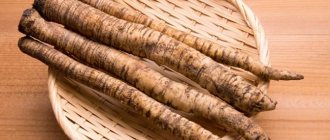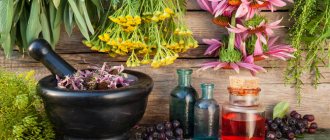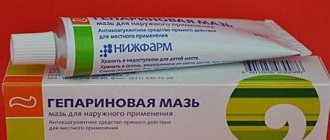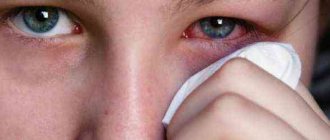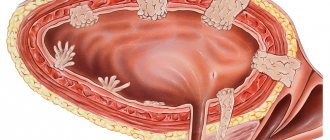The use of diuretic herbs for edema helps to remove excess fluid in case of heart failure (astragalus, valerian), decreased renal filtration (St. John's wort, Erva woolly), and hormonal disorders (oregano, sage).
A good effect is obtained in the treatment of edematous syndrome due to pyelonephritis (lingonberry leaf, nettle), urolithiasis (chamomile, half-palm). If swelling in the legs is associated with varicose veins, then the collections must include plants with a venotonic effect (rue, hawthorn flowers).
The basic principles of taking diuretic herbs are at least a week for an acute process and about a month for a chronic one, it is important to follow the dosage and undergo a doctor’s examination, take tests before the course and at the end. In pharmacies you can purchase easy-to-use preparations in filter bags: “Healthy Choice” renal, Nephrophyte with orthosiphon and others.
Causes of puffiness under the eyes
The cause of edema is excess fluid in the body due to poor outflow of blood and lymph. If there is increased pressure in the capillaries, then swelling on the face may also appear. Bags under the eyes may indicate low protein levels in the blood.
Edema occurs not only with pathologies of the urinary tract, but also with diseases of the heart and blood vessels, when it is also necessary to remove excess fluid from the body.
Expert Oksana Aleksandrovna Kim: about swelling
Director and chief physician of the ophthalmology clinic, has more than 10 years of practical work. In her opinion, the cause of edema may be the person himself:
- poor nutrition;
- drinking large amounts of fluids and alcohol in the evening;
- lack of sleep that has become chronic;
- excess salt.
In addition to reasons that depend on the person, swelling can also appear due to serious diseases. One of them is an allergic reaction of the body. This is an intolerance to pollen, food products, medications, household chemicals and components of animal protein compounds. No less serious reasons contributing to the occurrence of edema may be:
- infectious and viral diseases (ARVI, influenza, conjunctivitis);
- traumatic eye damage;
- chronic lack of sleep, interrupted sleep;
- constant drinking of alcohol, smoking;
- excessive consumption of salt, fatty foods, smoked meats, pickles;
- improper functioning of the pancreas (diabetes mellitus);
- increased intracranial pressure;
- stressful situations;
- cosmetics are the wrong choice;
- uncomfortable position chosen for sleeping;
- tattooing or Botox injection;
- neglect of hygienic facial cleansing.
Flu
Lack of sleep
Alcohol and smoking
Poor nutrition
Diabetes
Main indications
Swelling
You can look for the cause in a genetic predisposition or the presence of certain diseases, but often it is herbs that save the situation.
Cystitis
The inflammatory process is accompanied by painful urination, and there may be blood in the urine. The situation is saved by herbs that have a diuretic and antibacterial effect.
Heart disease and high blood pressure
Gentle and quick removal of excess fluid from the body is the key to reducing blood pressure and stress on the heart.
Pyelonephritis
The inflammatory process in the kidneys requires immediate external influence. It is important not only to use antibiotics, but also to ensure timely drainage of fluid. Stagnation leads to deterioration of the condition.
Weight loss
Activation of metabolic processes is carried out through the use of diuretics. In this capacity, diuretic herbs for edema are ideal. Numerous recipes for weight loss involve the use of phytodiuretics.
Other indications
It is recommended to use natural diuretics for the following conditions:
- poisoning;
- urethritis;
- urolithiasis, etc.
Only the attending physician has the right to recommend or prohibit the use of plants as diuretics in each individual case!
How does herbal medicine work?
Herbs with a diuretic or diuretic effect have a mild effect on the human body, aimed at the pathological focus. In the absence of intolerance to any component, they have a beneficial effect on well-being. Some herbs disinfect and relieve pain, while others, by removing excess fluid with urine, act as an anti-inflammatory agent. In any case, you must first consult with your doctor which natural diuretics can be used for your diagnosis.
Diuretic herbs:
- normalize pressure, both fundus and intracranial;
- slow down the penetration of salt into the renal tubules;
- improve renal blood circulation;
- act as antioxidants;
- influence the course of epilepsy (beneficial);
- relieve muscle spasms.
Indications for taking diuretic herbs
You cannot use diuretic herbs on your own. A consultation with a nephrologist or urologist and examination to make a diagnosis are required. With long-term use of the diuretic herb, periodic replacement is necessary. The doctor should advise on the daily dosage and stages of preparing a decoction or tincture at home.
Indications for the use of natural diuretics:
- diseases of the urinary system with the presence of hypertension, inflammation, swelling;
- taking antibiotics for a long time;
- alcohol abuse, the consequences of a hangover, to remove toxic substances from the body;
- consequences of intoxication after food poisoning;
- prevention of stone formation after removal.
Decoctions and infusions are not a panacea for excess weight. Excess fat remains, only liquid leaves.
Cautions before taking natural diuretics
Folk recommendations seem simple and safe, but they cannot be used uncontrolled, as they can cause harm. For example, watermelon during pregnancy eliminates swelling in some expectant mothers, while in others, on the contrary, it causes it. It all depends on the individual condition.
Traditional diuretic recipes cannot be used in the following cases:
- allergy to components;
- individual intolerance;
- BPH;
- nephrosis or nephritis.
A doctor's consultation is always required when it comes to pregnant women and women during lactation, children under 6 years of age, patients with diabetes mellitus and chronic pathologies of the kidneys, liver, heart, and gastrointestinal tract.
You cannot engage in symptomatic treatment alone, ignoring the source of the problem. Therefore, use traditional recipes with caution and only with the permission of your doctor.
Contraindications for taking diuretic herbs
A preliminary consultation with a specialist is required if there is swelling; the use of diuretic herbs is not recommended for children, pregnant women and the elderly.
Absolute contraindications for the following diagnoses:
- disturbances in the outflow of bile;
- kidney damage or nephrosis;
- diabetes;
- gout;
- kidney stones, especially large ones;
- deficiency of zinc, potassium;
- state of acute renal failure.
Also, do not forget about allergic reactions of individuals to individual components.
When purchasing medicinal herbs, pay attention to the expiration date. Use without violating them, because the usefulness of the product becomes imaginary, now it may contain components harmful to health.
You can collect the necessary herbs yourself, following all the necessary rules for drying and proper storage.
Pumpkin
Natural mild diuretic recipes can be prepared from long-lasting, all-season vegetables. Thus, pumpkin pulp contains a large amount of potassium, calcium and magnesium, as well as other macro- and microelements, due to which it is useful for fluid retention in the body.
For edema, it is recommended to drink pumpkin juice - it has a strong diuretic effect, but does not irritate the kidney parenchyma.
For a therapeutic effect, you can drink 0.5-1 glass of pumpkin juice daily, divided into several doses of 1 tbsp. l. during the day. Pumpkin juice is not recommended for allergies to carotenes and acute stomach disorders.
Side effects
By using diuretic herbs for swelling uncontrollably, there is a risk that symptoms of dehydration may appear:
- general malaise, weakness;
- headache;
- allergic reactions;
- discomfort in the lower abdomen;
- constant thirst;
- broken stool;
- convulsive conditions of the lower extremities;
- reluctance to eat;
- hormonal imbalance;
- cardiopalmus;
- impossibility of emptying the bladder when the urge appears.
It is important to note that the appearance of even one of the signs described above should serve as a reason to stop taking the herbal mixture. A more complex case may even require emergency assistance from specialists. Taking decoctions and infusions while expecting a baby, depending on the timing, can provoke a miscarriage or the threat of a frozen pregnancy.
Watermelon and melon
Melons and melons are rich in vitamins, potassium and magnesium. Each of them is a natural diuretic that quenches thirst and removes excess fluid from the body. Potassium salts in melons are very useful for cystitis, nephritis, pyelonephritis.
Nutritionists recommend consuming watermelons and melons in quantities of no more than 2-2.5 kg per day, depending on individual needs and tolerance.
The most popular plants
Parsley seeds
Parsley is used in the treatment of swelling and has proven itself to be an effective and gentle remedy. The use of infusions and decoctions will remove excess fluid and harmful substances from the human body. By adding parsley, roots or seeds, you can prevent the occurrence of edema. The plant contains a large amount of flavonoids. These are antioxidants that fight the effects of free radicals on the body: they prevent the accumulation of excess fluid and tone tissues and cells.
Parsley seeds
Celery
The juice of the plant contains a large amount of minerals, almost all the vitamins necessary to maintain the human body in a healthy state. Traditional medicine uses celery to treat edema. Sodium, potassium and magnesium, which maintain water-salt balance, are contained in the juice of the plant. When consuming celery, the liver and kidneys are stimulated and the elimination of toxic substances is accelerated. Excess water is released from the body and the normal ratio of fluid in the interstitial space and tissues is restored. Scientists who have conducted research on the plant are confident that its action can be compared to ginseng.
Celery should not be taken by both pregnant and nursing mothers. The specific taste of breast milk depends on it and its production decreases.
Celery
Anise
It is used when it is necessary to remove swelling due to pathologies of the urinary tract. To prepare the infusion, you need to take only raw seeds. Pour two liters of boiling water over a teaspoon of raw materials. Leave for 3 days. Before each meal you should take a tablespoon. The seeds will help relieve swelling and normalize metabolism. Anise should not be used by pregnant women.
Anise
Linen
The fastest acting remedy. The patient feels the urge to urinate after the first intake of flax. In just 1-2 days, the fluid that caused the swelling can be removed from the body. The decoction is prepared from 3 tablespoons of flax seeds, which are poured with a liter of boiling water. The mixture should brew. If the resulting decoction is too bitter, add a little honey or a few drops of lemon juice to it. Treatment with seeds should be carried out when it is possible to be at home, since flax is a very strong natural diuretic.
Linen
Lingonberry leaves
Lingonberry leaves are saturated with minerals and vitamins: calcium, potassium, sodium, phosphorus, C, B. It is used as a prophylactic, immunostimulant and for the treatment of vitamin deficiency. The flavonoids that make up the plant have a positive effect on blood vessels, tone them, and normalize blood pressure. Protein, which is easily digestible, will help during rehabilitation after poisoning, after serious illnesses and a strict diet. All substances are antioxidants. They protect the cells of the human body from the effects of free radicals, which disrupt the process of normal tissue reproduction and accelerate aging.
Lingonberry leaves
Shepherd's Purse
The plant has astringent and anti-inflammatory properties.
Using shepherd's purse externally, as a lotion, relieves swelling, reduces inflammation, and can stop the bleeding of small wounds on the mucous membranes and on the surface of the skin. The use of medicinal herbs helps with the removal of stones, with diseases of the excretory system, and is used for inflammatory, severe processes. Shepherd's purse has a vasodilator, diuretic, and antifever effect. The plant normalizes sleep, has a calming effect and counteracts depression and stress. Traditional medicine uses shepherd's purse to cleanse the liver, kidneys, gall bladder, and for the heart muscle - as an additional vitamin.
Shepherd's Purse
Effects of diuretic herbs on the body
Any diuretic herb is used in medical practice and by traditional healers to remove excess fluid from the body. It is also suitable for restoring kidney function and ensuring normal water-salt balance.
Excessive levels of moisture in the body can lead to metabolic disorders, swelling of the legs, and increased blood pressure. Stagnation of fluid is accompanied by many infectious diseases. That is why you cannot solve the problem yourself - you will need a comprehensive consultation with your doctor.
The use of diuretic herbs or special herbs to treat diseases of the excretory system or eliminate the consequences of an infectious disease is far from uncommon. Plants are often indicated in the complex treatment of ailments; they are used as effective aids.
The use of herbs to remove accumulated fluid provides this effect.
- Suppression of the activity of a special enzyme - carbonic anhydrase. This allows you to quickly and painlessly remove excess fluid from the body.
- Regulation of hormone levels that are actively involved in water-salt metabolism. This effect is also observed due to the effect on the carbonic anhydrase enzyme. This allows you to eliminate swelling and swelling, including the legs.
- Ensuring cleansing of the body from toxins, eliminating the accumulation of metabolic products and decay. Excess fluid is removed from the kidneys, which also stimulates the elimination of the inflammatory process.
- Guaranteed reduction in blood pressure and stress on the heart.
- Providing kidney functions, including filtering.
You cannot solve health problems on your own in order to exclude the development of concomitant diseases. Timely contact with a doctor allows you to detect diseases in the early stages and develop an effective system to eliminate them.
The doctor prescribes the correct dosage to reduce the risk of potassium being excreted from the body.
Natural diuretics for facial swelling
The following plants:
- flax seeds;
- half fell;
- corn silk;
- beet leaves.
flax seeds
Half-fallen
Corn silk
Beet leaves
Herbs for swollen legs
Horsetail
Eating horsetail helps eliminate the problem of protein in urine. The plant stimulates urination and disinfects the urinary tract. Herbal decoctions help relieve swelling of the heart and kidneys. Along with the diuretic effect, an analgesic effect was also detected. Horsetail has long been used in the treatment of various diseases of the musculoskeletal system, internal bleeding, and the presence of kidney stones.
In case of exacerbation of diseases of the stomach or intestines, it is better to consult a doctor. The use of herbal infusion is not recommended for nephrosis, nephritis, pregnant women, and children. Adverse reactions are extremely rare. Long-term, improper use of medicinal herbs can provoke digestive upset and allergic reactions.
Horsetail
Chamomile
Chamomile has not only a diuretic effect, but also analgesic, anti-inflammatory, choleretic, carminative, astringent, sedative, antispasmodic and antiallergic. The plant contains chamazulene. It is this substance that calms the nervous system, stimulates brain function, activating blood circulation in the brain vessels, and has a beneficial effect on the digestive organs.
Chamomile has a calming, positive effect on all skin types, therefore it relieves various inflammations and itching, helps eliminate swelling and redness. During pregnancy, use is prohibited, and when breastfeeding, use must be approached with caution. Before using chamomile infusions and decoctions, it is necessary to consult a doctor for those people who take vital medications and those who have chronic diseases. If you are hypersensitive, do not use the plant for treatment.
Chamomile
Bearberry
The plant has a powerful diuretic effect. To prepare the decoction, pour a teaspoon of leaves into 100 ml of boiling water and simmer over low heat for up to half an hour. Then strain, add another 100 ml of boiled water to the broth. Use 40 minutes before meals, 1 tablespoon, 6 times a day.
Bearberry
Nettle
Dried and fresh stems, leaves and oil are used as a diuretic.
- Nettle massage oil: to prepare it, chop fresh leaves and mix with sunflower oil in the same ratio. Then the resulting mass is heated in a water bath until it boils. When cooled, rub into the skin of the feet.
- An infusion of a mixture of herbs and nettles: mix equal parts of nettle leaves, St. John's wort and chamomile (1 tsp each), then pour boiling water over it and let steep for 1 hour. Next, divide the infusion into 5 parts, take before meals during the day.
Nettle
Melissa
The herb is a strong natural diuretic. Reduces pain symptoms in pathologies of the excretory system, urolithiasis. Relieves inflammatory processes, the presence of intoxication, improves the acidity of urine. To prepare the decoction, pour 200 ml of boiling water over a tablespoon of dry stems and leaves of the plant, boil for 10 minutes and strain. Take 1 tablespoon before meals.
Melissa
Diuretic tea for leg swelling
Diuretic decoctions and teas for swelling of the legs due to varicose veins must contain plants with a venotonic effect. It is recommended to prepare a collection from:
- knotweed herb 30 g,
- horsetail herb 40 g,
- rue herbs 20 g,
- hawthorn flowers 10 g.
A tablespoon of the plant mixture is poured into a glass of water at room temperature overnight. In the morning, bring the mixture to a boil and immediately remove from the heat and leave for 15 minutes. You need to take a sip throughout the day, add half a teaspoon of honey if desired. The course of treatment lasts 1 month.
Diuretic herbs are most helpful against renal edema due to pyelonephritis and nephropathy. In case of moderate or mild edema syndrome, they can be the main method of therapy; in more serious cases, they are used after the main course. Infusions and decoctions of herbs and herbal preparations are also used for venous and heart failure.
Herbal diuretic tablets
Taking medications to relieve swelling is necessary. They remove excess exudate, which is located in the subcutaneous tissue and puts pressure on the nerve endings. As a result, severe pain occurs.
Herbal diuretic tablets
Name and effect of the medicine:
- Flaronin. It has a powerful diuretic effect and improves blood circulation in the kidneys. Used for a month, 3 times a day.
- Lespenefril. Increases filtration in the renal tubules, reduces the ratio of nitrogenous substances in the blood, improves urination. Indicated for use in kidney diseases. Available in tincture form.
- Aflazin or hibiscus extract. Has anti-inflammatory, diuretic effect. Do not use for children under 6 years of age and pregnant women. Allergic reactions are possible.
- Phytolysin. Without chemical components, plant based, available in the form of a paste. For use: dissolve 0.5 teaspoon in a glass of warm water. Apply 3 times a day.
Flaronin
Lespenefril
Aflazin
Phytolysin
Green tea
The most affordable and effective folk diuretic. In addition, green tea fights infections and lowers cholesterol. When applied to edema, the following components of the drink are effective:
- Thanks to caffeine, tea has diuretic and psychostimulating properties, reduces headaches, and accelerates blood circulation. Young leaves have more caffeine than older leaves.
- Tea contains phosphorus, copper, manganese, calcium, potassium, zinc. Minerals regulate water balance and maintain balance in the body.
- Gamma-aminobutyric acid (GABA) in the drink lowers blood pressure.
Every day you can drink about 1 liter of freshly brewed tea, take it before or after meals. To prepare according to a folk recipe, take 1 tsp per 100 ml of hot water (80°C). tea, leave for 2 minutes.
Rules for preparing herbs
Decoctions
It is recommended to consume all decoctions and infusions before 16:00. This advice is necessary because there will be no regular toilet visits due to the diuretic effect of the herbs, which will allow you to get a good night's sleep. It is also recommended to follow all doctor’s orders and take into account that diuretics have a cumulative effect. Therefore, the first results can be expected only some time after the start of regular treatment.
Sodium, potassium, and all electrolyte levels should be checked during recommended therapy.
Tea
Drinking tea as a medicinal product is recommended after lunch, when the gastrointestinal tract is in the active phase. It is prohibited to independently select drinks for the elderly, children and pregnant women. If you drink tea for a long time, you need to change its composition and first consult a doctor. To avoid dehydration, you need to drink more clean water.
Infusions
Herbs that have a diuretic effect are used as a basis for preparing tinctures with alcohol or vodka. The raw materials must be thoroughly washed and crushed. Fill a container with a lid two-thirds full with herbs. Then add high-quality vodka or alcohol. Infuse for a month. Store in a dark place. If you experience pain in the kidneys or in the heart area, allergic reactions, unstable blood pressure (jumps), you should stop taking the herbal mixture and consult a specialist for medical help.
Ice
Frozen herbal infusions have a deep effect on the skin, moisturize it and provide it with nutrients. Apply these ice cubes in the morning and rub the face for 3 minutes. After the ice procedure, you need to apply cream.
For dry skin, dilated blood vessels, inflammation and scratches, frozen infusions should not be used. It is also not recommended to use ice before going outside in the winter.
How to prepare: for the decoction it is better to use water, having previously filtered it. Pour the infused broth into ice molds and let it harden in the freezer.
Cucumber
The vegetable is 96% water and contains potassium and magnesium. This composition makes cucumber a gentle diuretic. It also removes and absorbs toxins, expels stones from the kidneys, and eliminates swelling due to cardiovascular disorders.
In folk medicine, diuretic cucumber juice is used. To prepare it, you need to take whole fruits with peel, fresh and not overripe. Use a juicer. If you don’t have it, grind the cucumber into a paste with a blender and squeeze out the liquid through cheesecloth.
You can drink half a glass of cucumber juice several times during the day. The total volume is no more than 4 glasses per day.
Other anti-edema remedies
To take all medications for edema, you must consult a doctor. You need to make sure that the composition does not contain parabens, fragrances, dyes, animal or mineral fats. Such substances can accumulate and cause harm to the body. Problem areas with swelling should be treated twice a day, in the evening two hours before bedtime. Cleanse facial skin, remove makeup. Do not stretch the skin, rub the eyelids, put pressure on the eye area, or apply medications to the edge of the eyelid.
Ointments and gels
Blepharogel is the most popular.
It contains hyaluronic acid and aloe juice, glycerin. These substances help remove puffiness, fine wrinkles, moisturize the skin, and heal small wounds. Heparin ointment, in addition to its main use, is used by cosmetologists. The components included in its composition promote the resorption of bruises and bruises under the eyes, and reduce wrinkles.
Traumeel is a homeopathic ointment. Chamomile, belladonna, arnica, witch hazel, which are part of it, have a regenerating and calming effect
Troxevasin - gel. Can be used as a remedy against edema, promotes the resorption of hematomas.
Troxerutin. Decongestant, anti-inflammatory, venotonic, angioprotective and antioxidant agent.
Blefarogel
Heparin ointment
Traumeel
Troxevasin
Troxerutin
Cosmetical tools
The line of cosmetics for bags and puffiness under the eyes is presented in the form of firming or moisturizing creams that are applied under basic makeup. There are also cooling ointments and creams for the delicate area around the eyes. Before the first use of care products, it is necessary to conduct a test to exclude the occurrence of allergic reactions. You need to apply a small amount of cream or ointment to your wrist and observe for half an hour. The lack of reaction makes it possible to use the care product. If allergies occur, it should not be used.
Cosmetic masks help eliminate swelling. You can choose one that suits you, both in a pharmacy and in a chain of stores. Massaging the area around the eyes and the entire face will help cope with swelling. It improves skin elasticity, reduces muscle tension, promotes tissue regeneration and activation of cellular metabolism, and eliminates swelling of the eyelids. Massage should be carried out after cleansing the facial skin with special products. After the procedure, apply cream or use a mask.


